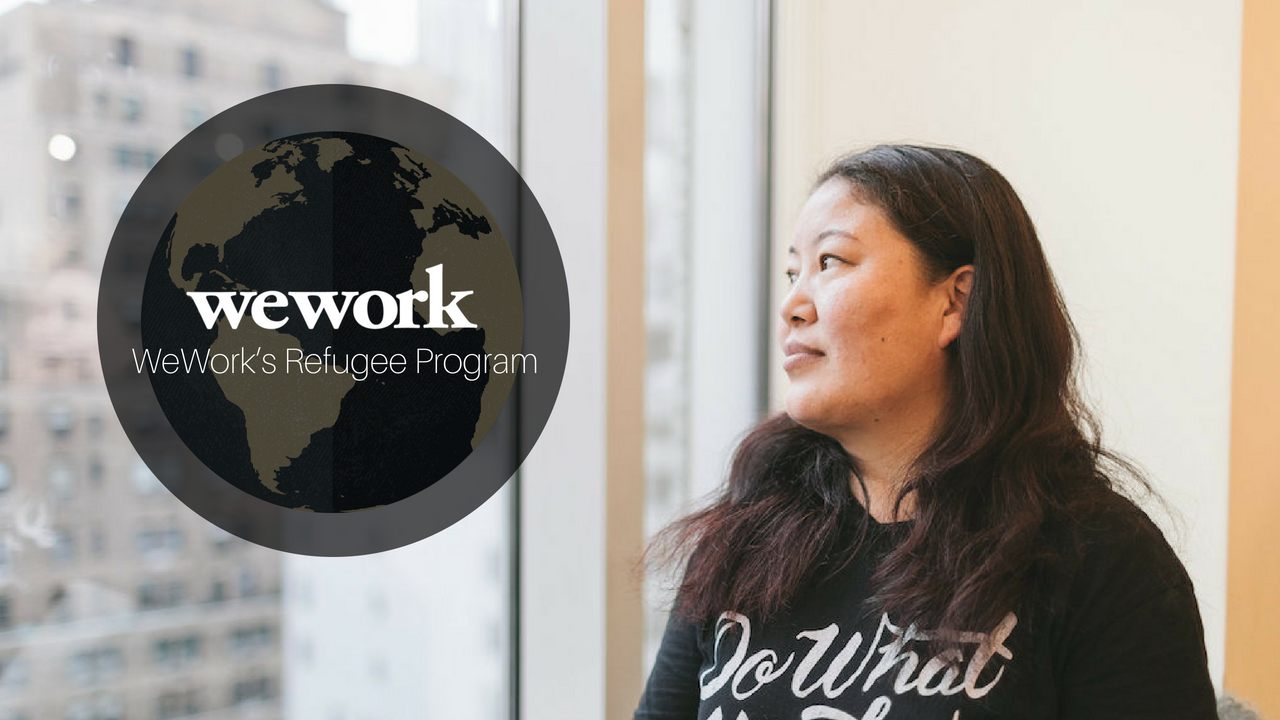- Last week WeWork announced plans to train and hire 1,500 refugees over the next five years
- So far, WeWork has hired 150 refugees across 10 countries
- In an interview with Allwork.Space, PR expert Eric Yaverbaum, explains why WeWork’s refugee program is a “phenomenal PR maneuver”
Last year (2017) WeWork and the International Rescue Committee “started a pilot program to employ recently resettled refugees displaced by war, political unrest, or natural disasters.” Back then, more than 50 people were hired in New York, Chicago, and Boston.
Last week in the context of World Refugee Week, “WeWork announced the expansion of the initiative to the UK, Brazil, and Colombia through direct hiring, new partnerships, and connecting refugees with job opportunities both within and outside of our community.”
The expansion of the initiative is a consequence of the success of the pilot program, which saw a retention rate of over 80%. The WeWork Refugee initiative is a “commitment to hire 1,500 refugees over the next five years.”
Today the coworking giant has hired over 150 refugees across 10 cities. To help them integrate into the community, WeWork is offering monthly events, mentorships, training, and growth opportunities.
Related articles:
- Refugee Support Group, RiF, Finds Coworking Home In Alley New York
- Coworking Community Working To Create Solutions For Refugee Crisis
- All Good Work Finds A Manhattan Home For Co-Living Nonprofit, BASE
Additionally the company also reported having started “several pilots, including one to use its space for partners to teach language skills, as well as another to help entry-level staffers hone their skills in coding and technology,” to aid with the process of assimilation and building a new life.
In the past, companies like Starbucks and Chobani have tried similar programs, but have faced backlash from the public.
To understand why the initiative is working for WeWork and why the response they’ve experienced is so different than those by other companies, Allwork.Space spoke with Eric Yaverbaum, a 35-year public relations and marketing veteran and CEO of Ericho Communications.
In an interview with the Washington Post, CEO of WeWork Adam Neumann said that “the move is not a political statement.” However, Yaverbaum believes it is — even if unconsciously.
“Everything in this country seems to be a political statement. Anybody that does anything that is remotely connected to politics risks adversity. Even if WeWork claims it’s not one, professionally speaking I think what they are doing is a phenomenal maneuver.
“They got out in front of the story, and that is textbook good PR.”
WeWork’s Plan is Close to Perfect
Asked why he believes WeWork hasn’t faced any harsh backlash from the public, Yaverbaum states that it’s because WeWork is also hiring 1,500 veterans.
“When you are hiring 1,500 refugees and 1,500 veterans, it balances the kind of reactionary objections that have in the past played out when other companies made similar announcements.
“Because of the way WeWork has positioned refugees and veterans, they get to make a political statement while maintaining a position of neutrality.”
“There are always two audiences in the world of PR. The internal audience and the external one.”
WeWork’s internal audience in fine-tuned into this type of initiative; they are about community, collaboration, and support. “It was only natural for them to be supportive of the initiative.”
As for the external audience, “maybe they haven’t even heard of WeWork or maybe they have but had no idea what WeWork does; now they do and the only association they will have is a positive one.
WeWork achieved the Holy Grail of great communications, which is a big chance for them to attract new business from this,” while demonstrating their commitment to their internal and external community.



 Dr. Gleb Tsipursky – The Office Whisperer
Dr. Gleb Tsipursky – The Office Whisperer Nirit Cohen – WorkFutures
Nirit Cohen – WorkFutures Angela Howard – Culture Expert
Angela Howard – Culture Expert Drew Jones – Design & Innovation
Drew Jones – Design & Innovation Jonathan Price – CRE & Flex Expert
Jonathan Price – CRE & Flex Expert












